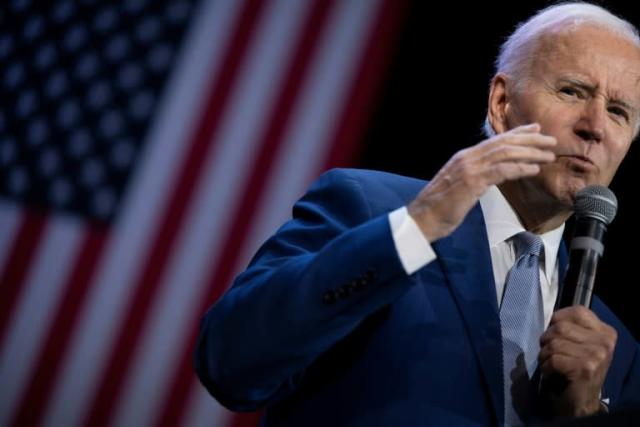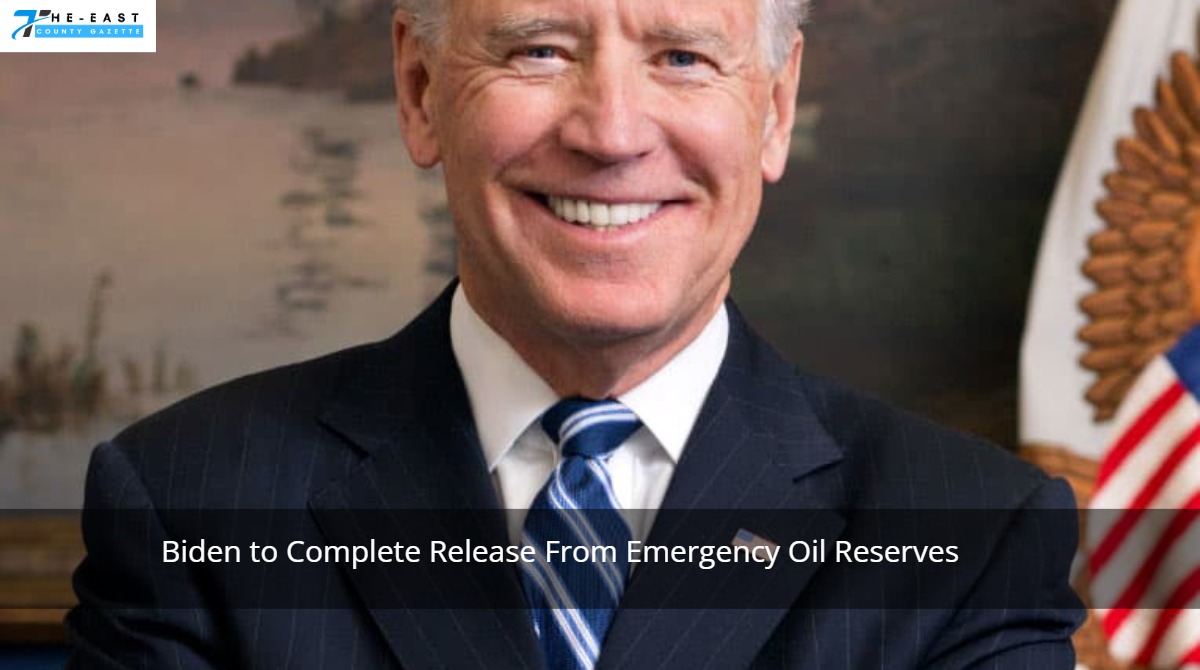WASHINGTON– One of the few things President Joe Biden can do before next month’s midterm elections to convince people he feels their agony at the pump is that he is releasing 15 million barrels of oil from the nation’s emergency reserves.
The sale is the largest in the reserve’s nearly 50-year history and fulfils Vice President Biden’s March instruction to release 180 million barrels.
Gas prices have fallen dramatically since the summer but have risen somewhat since September and are still higher than last year.
Nearly two weeks after OPEC and its oil-exporting allies agreed they would limit oil production by 2 million barrels per day to raise prices, Biden took action.
Gas prices have fallen dramatically since the summer but have risen somewhat since September and are still higher than last year.
Nearly two weeks after OPEC and its oil-exporting allies agreed they would limit oil production by 2 million barrels per day to raise prices, Biden takes action.
The Energy Information Administration estimates that the remaining 15 million barrels of oil brought to the market in December is less than one full day’s worth of oil used in the United States.

Inflation and gas prices have risen rapidly since last November, prompting Biden to dip into the reserves. The situation was made worse by Russia’s invasion of Ukraine in February.
For the next six months, beginning in March, Biden has authorized the release of one million barrels of oil daily. In its nearly 50-year existence, this is the most significant withdrawal from the reserve. The administration caused the release delay, which will be finalized by the end of the year.
In a crisis, like an energy embargo, cyberattack, Middle Eastern war, hurricane, or other natural calamities, too much of the reserves may have been depleted.
About 400 million barrels of oil are currently stored in reserve, which is the lowest level in 40 years. Even so, the White House insists that this is more than enough to dig into further should the need arise.
A brief explanation of the SPR is in order.

The purpose of the Strategic Petroleum Reserve is to provide continued access to petroleum in emergencies such as natural disasters or threats to national security. The reserves are kept in caverns carved out of salt domes on the Texas and Louisiana coasts.
Congress established the reserve in 1975 following the 1973 oil crisis, which saw energy prices skyrocket due to output cuts by oil-exporting countries.
As changes in global oil output have made politicians less anxious about future shortages, the United States has tapped the reserve to collect the income.
Before Biden, President Barack Obama released 30 million barrels of oil from the reserve in 2011 in response to supply difficulties caused by civil strife in Libya. Both George W. Bush and his father, George H.W. Bush, released oil from the reserve during wartime; the younger Bush released 11 million barrels to mitigate the effects of Hurricane Katrina.
Do gas prices go down if oil is released from the reserve?
According to a Treasury Department report from July, Biden’s March decree and comparable actions taken by other countries resulted in a 17-cent to 42-cent reduction in gas prices per gallon.
However, GasBuddy’s head of petroleum analysis, Patrick De Haan, said that the economy’s slowdown due to higher interest rates was primarily responsible for the price drop. Republicans have suggested that Biden promote domestic oil production rather than drain the reserves. When did Biden decide to take action?
Biden pledged last month to investigate measures to reduce gas prices after the OPEC+ alliance of oil-exporting countries approved output cuts.
Republicans are using the price of petrol and other consumer products as a political weapon against Democrats in the upcoming midterm elections. Biden recognizes that he and his fellow presidents are powerless to reduce them significantly, but they want to give the impression that they are taking action.
If Biden were to release more oil, that would be a boon. According to the White House, Vice President Biden will make it clear that he is prepared to release a “substantial additional” amount of oil if necessary to alleviate market disruptions caused by the conflict in Ukraine or other events.
After the conclusion of the final 15 million barrel release, Biden will have roughly a month to decide on whether or not to release further reserve oil to the market in January.

